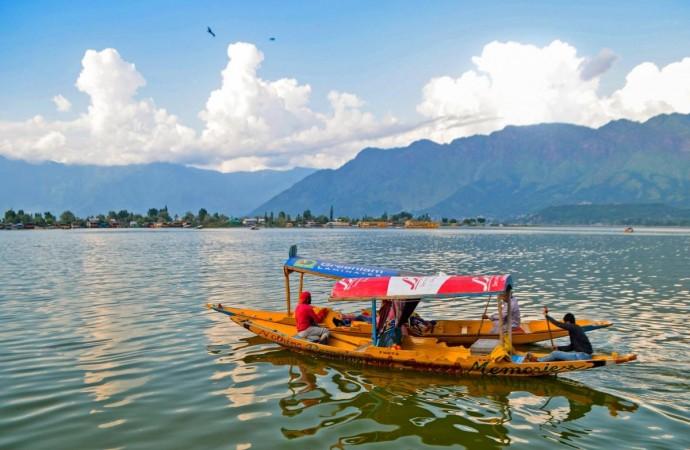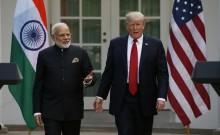
As the political landscape of Jammu and Kashmir prepares for upcoming assembly elections, the voices of the region's youth resonate with a blend of hope, apprehension, and longing for clarity. Danish Bhat, a Kashmiri youth, pens his second open letter to Prime Minister Narendra Modi. Through this correspondence, Bhat articulates the collective aspirations and concerns of a generation shaped by decades of conflict and political uncertainty. His letter navigates through the complexities of Kashmir's socio-political fabric, advocating for healing, accountability, and clarity as indispensable prerequisites before the region embarks on its journey towards democratic governance.
Against the backdrop of recent developments post the abrogation of Article 370, Bhat acknowledges the strides made towards peace and development while underscoring the imperative of safeguarding these gains through transparent governance and inclusive dialogue.
Here's the full text of Bhat's open letter to PM Modi:
Hon'ble PM @narendramodi Ji,
As a Kashmiri born in the 90s, having witnessed the tumultuous history of my homeland, I seek to share my thoughts and concerns. This open letter earnestly implores consideration for the crucial prerequisites of healing, accountability, and clarity needed for the wounds of 29 years and the confusion of 72 years before progressing towards assembly elections in Jammu and Kashmir.
My formative years unfolded amidst the deafening echoes of roaring guns, exploding bombs, and pervasive bloodshed. It was, undoubtedly, a childhood marred by the harsh realities of conflict, aptly described as a "disturbed childhood." The trajectory of our political narratives took a defining turn in 2008, marked by street protests and fervent calls for India to disengage from Kashmir. This period exposed my generation to a separatist mindset, advocating relentless opposition against India. The sentiment was robust on the ground, supported by an intellectually backed narrative from influential sections of society.
There was a distinct gap between the people and the mainstream, as the mainstream lacked a compelling counter-narrative capable of challenging these ideas.
Our mainstream leadership, at times, seemed to mirror the separatist sentiment, casting doubt on their allegiance to the idea of India in Kashmir. Their dubious stance, at times thanking Pakistan even in victory, left the youth disillusioned. The absence of a sincere articulation of the idea of India in Kashmir lies at the doorstep of our mainstream politicians, who cannot escape the responsibility for this void. It is important not to overlook that many mainstream leaders in Kashmir have benefited equally from the perpetuated conflict, turning the tragedy into personal gains.
The post-2019 era has witnessed positive transformations, primarily attributed to the Centre's decision to abrogate Article 370. The reduction in street violence, a decline in civilian casualties due to unrest, the weakening grip of terrorism, and the restoration of peace have been tangible outcomes. Dismantling the hawala trafficking network in Kashmir has dealt a significant blow to those who thrived on the perpetuated conflict. Life in Kashmir is gradually returning to normalcy, with thriving businesses, a resurging tourism sector, and educational institutions operating without the specter of closures due to hartal calls.
The unemployment predicament that Jammu and Kashmir shared with the rest of the country is witnessing a positive shift. The private sector, along with several multinational corporations offering remote working options, is bringing new opportunities to the region. Central government schemes, such as Jal Jeevan Mission and Saubhagya Electrification Scheme, are reaching the farthest corners, transforming lives with improved water and electricity access. The Pradhan Mantri Garib Kalyan Anna Yojana is alleviating the hardships of those below the poverty line, contributing to an overall positive transformation of lives amid a prevailing peaceful environment.
I would be remiss not to acknowledge the Ayushman Bharat Pradhan Mantri Jan Arogya Yojana (AB- PMJAY) SEHAT scheme, providing free insurance coverage and financial support up to Rs. 5 lakh per family to all residents of Jammu and Kashmir. This initiative has democratized access to quality healthcare, ensuring that even the economically disadvantaged have the means to avail themselves of the best medical treatment. As a young Kashmiri, I extend my gratitude for extending the benefits of this scheme to all households in Jammu and Kashmir, a departure from the rest of India where only the economically challenged are covered.
The semblance of peace in Jammu and Kashmir, steered by the intent of your government, has set the stage for unprecedented developmental strides. The smart city initiative has not only changed the physical outlook of the city but is transforming it into a world-class urban center. Pradhan Mantri Gram Sadak Yojana (PMGSY) has played a pivotal role in improving road infrastructure, with Jammu and Kashmir ranking third in the country in road network development under this scheme.
These positive developments, however, underscore the fragility of the peace achieved. It is crucial to safeguard Jammu and Kashmir from any attempts to disturb this peace and push it back into the cycle of violence. The authority cannot be swiftly returned to those who have historically disrupted peace, exploiting and undermining our institutions. The shadow of unbridled corruption looms large in the history of our past governments, and before the reins of governance are handed back entirely, accountability for the past seven decades is imperative. As a young Kashmiri who has witnessed peers sacrificing their lives, I demand this accountability, urging that this land can indeed wait a bit longer before elections are held. Let the peace be not just a transient phase but a lasting foundation on which we build a democratic and just society.
In conclusion, I appreciate the positive strides that have been made, acknowledging the transformative impact of the initiatives undertaken by your government. However, I fervently appeal for prudence and caution in the transition towards full-fledged democracy. Let healing take precedence, and let accountability be the bedrock on which a new and just political landscape in Jammu and Kashmir can emerge.
Yours sincerely,
Danish Bhat.









